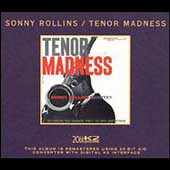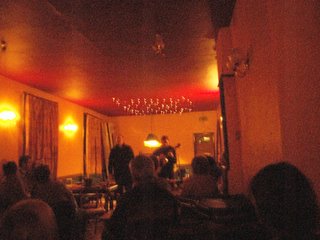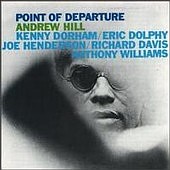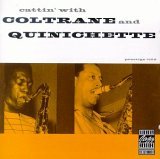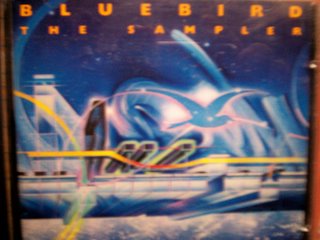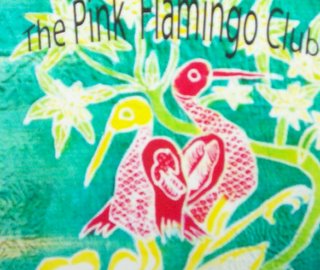On this sad day of Derek Bailey's funeral, condolences to his partner, Karen, family and friends - and some final thoughts. The story of his life and achievements is documented in plenty of other places – I just want to record my personal reactions to his passing. When you have never seen or met an artist but only know them from recordings I suppose you create an image of what they might be like in real life. By various accidents of geographical location I was never in the right place at the right time and never got to see or meet Derek Bailey yet he was one of my favourite musicians – up with Monk, Coltrane, Cecil Taylor and Miles. I suppose that straight away one can draw a line connecting all of these – and not the obvious one that the four I just mentioned were and are jazz musicians or playing from the tradition that Derek had also emerged from – and then transcended mightily. The linkage is – integrity. Integrity as artists specifically – I do not know enough about their private lives to comment nor would I be interested in doing so, having no prurient interest and being a believer in the maxim of William Seward Burroughs taken from the short piece re-printed
here – 'Most of the trouble in this world has been caused by folks who can't mind their own business, because they have no business of their own to mind .' Miles Davis was, apparently, an unpleasant enough man at times – by his own autobiographical testimony - yet was also capable of great kindness. But consider how he kept on moving artistically rather than sit back and trot out standard choruses on 'Walkin' year after year, encased in a smart Marsalis-like suit and tie. Integrity. Bailey, certainly on the evidence of the interviews I have heard and anecdotal evidence, also had a great deadpan sense of humour. I had entertained a fantasy that I might be able somehow to book him for the club that I run – although where the money was going to come from... But running an improvised enterprise like the Club Sporadic outside of the usual subsidies and art bureacracies you need lots of faith and hope... I was sure that somehow I could secure the money. Then I could have pulled a double coup: booked Derek into the darkness of the East Midlands and sent up a fiery light – and got to hear him close up. Well, we know now that it isn't going to happen in this life. My selfish loss. But also there will never be the chance to give others the chance to hear him. But the fact that I run such a club stems in part from the example of Bailey and others setting up networks, record labels, festivals – creating performing environments from scratch and surviving on ever-fraying shoestrings – a further extension of the integrity of those who see a clear purpose in what they are doing, however supposedly off-the-wall and distanced from the mainstream. The top room of a pub as paradigm for autonomous zone of freedom... even if complete sometimes with the archetypal three men and a dog...
I never saw Monk or Trane or Miles either. But you go with what you have... In the last year I got to see Cecil Taylor, Anthony Braxton, Ornette Coleman, Misha Mingelberg, Erik Friedlander and John Zorn, Evan Parker, despite (or because of, having the free time to travel) recovering from illness. All of whom did not disappoint my expectations...
But not Derek.
It is hard to overestimate my sheer affection for this man, whom I never met. I came to understand his playing more when I started my own faltering steps into free improvisation as apart from improvising conventionally. He had already been down the road... and it is still difficult to avoid the influence. Hearing him for the first time was a truly world-changing moment – comparable to the first time I heard Thelonious Monk, for example. It was the SOUND, not the notes but the way they were strung together. It is long-received critical wisdom that you can tell Monk from a couple of notes – slightly hyperbolic, maybe, but in practice this usually the case. Regarding Derek Bailey, this is equally true. His individual vision for re-structuring guitar playing in a free improvising environment, by the time it came to fruition, indicated to the listener that they would not mistake the player for anyone else. It seems as if Bailey went right to the material core of what guitar playing was and is about. I have written
elsewhere in a comparison between Bailey and Joe Morris, a player with some small resemblance but playing more out of jazz, that if you transcribed their solos on acoustic guitar, you could just about imagine Morris's lines transposed to another instrument – with Bailey this would pose many problems of notation. It is not so much the individual notes as the whole of the guitar gestalt that would have to be considered. The difference between playing on a conventional piano,say, and a prepared piano which takes you under the lid into the entrails of wires and hammers and frame. On a saxophone – forget it... Bailey gets inside the guitar, explores its essence of wooden knockings, overtones, string rattle, open strings ringing in a manner that orthodox jazz, say, does not implement. (Having to modulate continually and play with horns means that most jazz guitar chording and scalar playing works off positions going up and down the neck that do not use in the main open strings, the un-stopped strings being deadened by the sides of the fingers). Almost a folk take on playing. Crossed with the implied musical knowledge behind – from jazz and dance band repertoire to 20th century art music. Using the timbral qualities of the instrument helped him to move beyond the conventional chromatic harmonial solutions to improvising by rising above them as it were, forging a metalanguage that is vertical and horizontal in ways that evoke Cecil Taylor. To escape chromatic harmony's drive towards conventional resolution and open up new spaces with the implied imperative of demanding new ways of listening. The texture of the guitar being as important as the actual notes – an equality of timbres, resonance and musical ideas that demands an immersive listening rather than a linear one? Or, as we cannot totally escape the flow of time, an immersive listening alongside or simultaneous to the lineal? A vertical listening to parallel the horizontal? The use of harmonics as an integral part of the note selections is much more extensive than is usually found in the guitar canon – an echoing maybe of the extended range of the saxophone through so-called overblowing – or the 'prepared' piano? These harmonics disrupt the line even as they extend it... contributing to the spiky feel...
His playing with others is equally intriguing. On the very good WMFA broadcast to be found
here, there are back to back tracks of him in a duo with Joelle Leandre and a trio with Calvin Weston and Jamaaladeen Tacuma. On the first, Leandre sets up a wonderful long sonorous arco line and Bailey appears to be scratching at this round the edges, playing a sharp, percussive chordal backing. Slowly he comes more into the foreground, the 'comping' figure blending in with the double bass line until they come together. He works aqainst and with the power of Leandre – and you need to be a strong player not to be daunted by Bailey, I think. And this doesn't necessarily apply to technique – more to character and experience. On the other track he meets two other players who stand their ground, the bass and drums of Tacuma and Weston. And rightly so: they give him the supple rhythmic almost harmolodic space to bounce his electric guitar off – a joyous track. The speedy sixteenth note rhythms bring out some inspired playing here as he alternatively floats across the beat and locks onto it. Something that Ornette Coleman does, come to think of it. It proves my thought that he could play anywhere and find his own space – or attract others into his. This last track is also very jazzy... Compare and contrast to his playing with Ruins where his electric guitar cranks out wild distorted howls over the noise/metal/rock of the Japanese duo – not bad for a man of his age, beautifully described by Stewart Lee as 'a cross between Clegg from Last of the Summer Wine and a harsh-but-fair science teacher...' in his piece on Bailey for the Sunday Times January 19 1997 – go
here... By using standard tuning he gave himself further freedom – he gave up 'prepared guitar' fairly early on because, I guess, it actually limits you to playing inside the 'preparedness.' Also, putting the guitar say to modal or open tunings takes you out of the standard but actually again limits you to the insistent tonality of the tuning By using the open strings he can root his playing tonally at times but move beyond conventional resolution – the tension coming from the notes crushed, sprung and chopped across those open strings to provide a kind of pan-tonal rather than stricly atonal ambiguity and complexity. Some of this transfers over into his electric playing... although the volume, timbral qualities and built in speed of the electric medium require different strategies. For example, the longer sustain of notes – on an instrument that can be played fast, conversely you don't have to.Yet he is still, demonstrably, Derek Bailey, instantly recognisable, the style/metalanguage in place.
Bailey established himself internationally playing and recording in a bewildering amount of line-ups and settings – those who follow the music increasingly recognising his influence and genius. In recent years, predictably, however, one started to notice the backlash creeping in. After the dust settles (some biblical image there?) will be the time to consider his contribution more soberly . Oddly enough there have never been that many detractors (surprisingly, considering some of the scathing comments he makes about the parochial/bureaucratic nature of some aspects of the London scene in this
interview – thanks to
Zoilus for this) – the recent sniping was more of a balancing, maybe, or the inevitable reaction when an artist has been on the top of their game for so long. There was, maybe, too much reverence at times. But I suspect that his place in the world of improvised music – and beyond – is secure. I doubt that it bothered him overmuch – this after all is a man who has played with the whole roster of international musicians from within and without the improvising world – and with Morecambe and Wise and Gracie Fields. And called his various guitars 'George.' And had a firm and humourous sense of his own worth and contribution to the music...
When the dust settles... the Sheffield steel will still be shining through...
